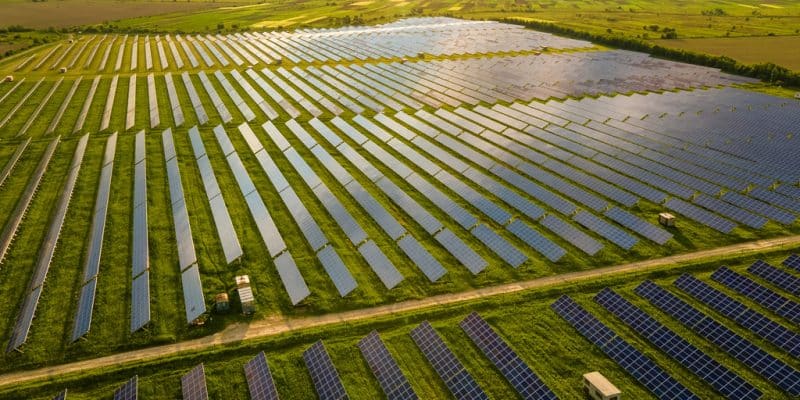In the Central African Republic (CAR), the Sakaï solar power plant, located 10 kilometres from the city of Bangui, is coming into service after three years of work. With a capacity of 15 MW, the installation should make it possible to deal with the power cuts that sometimes last 16 hours a day in this Central African country.
Cooperation between China and the Central African Republic (CAR) in the field of energy is beginning to bear fruit. The Central African country recently inaugurated the Sakai solar power plant, which received financial and technical support from the Middle Kingdom. The facility, located near the capital Bangui, has a capacity of 15 MW.
“Energy is the basis of everything, because without it we can do nothing. This infrastructure will increase the overall electricity supply in Bangui for the benefit of households, economic development and, in particular, industry,” explains Arthur Bertran Piri, the Central African Minister for Energy Development and Water Resources.
Although the city of Bangui has an electrification rate of 20%, several Central African localities, particularly in rural areas, are not yet connected to the national electricity network, which supplies only 4% of the Central African population, according to World Bank estimates. To remedy this, the CAR authorities are banking on the 2015-2030 Investment Project.
Read also-
It includes the hydroelectric schemes of Lobaye (75 MW), Dimoli (180 MW), Lancrenon (20 MW, on the border with Cameroon), Kotto (40 MW), as well as the rehabilitation of the Boali II hydroelectric plant (10 MW to 15 MW). These infrastructures, which will require an overall investment of 200 billion CFA francs (nearly 3.7 billion dollars), should be accompanied by an electricity transmission network, according to the Central African authorities.
Benoit-Ivan Wansi






